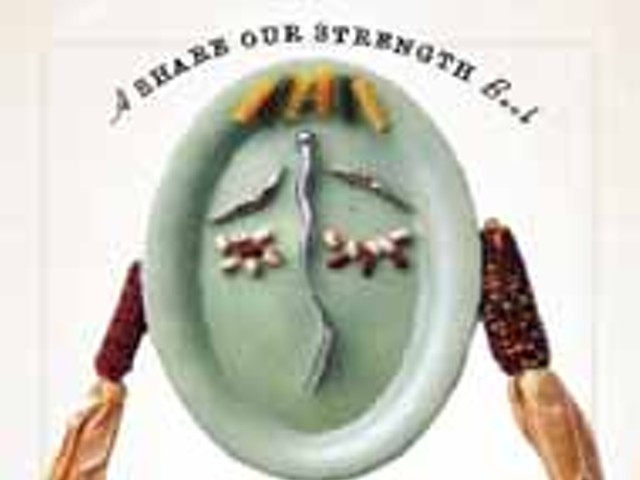Walkin’ the Dog
by Walter Mosley
Little, Brown and Company
$24.95, 260 pp.
Like its predecessor, Always Outnumbered, Always Outgunned, Walter Mosley’s new book is a collection of loosely interwoven short stories centering around an unlikely hero named Socrates Fortlow, a black ex-con eking out a meager living in Watts while wrestling with his demons and trying to do the right thing.
Though pushing 60, Fortlow is an imposing physical giant, hardened by punishment and pumped up by a rage that’s only slightly tempered by self-loathing. On the surface, he’s an opaque creature, a repository of fear for both black and white folk, shunted aside by society at large. But Fortlow isn’t your run-of-the-mill sociopath or damaged psyche — he has the both the curse of conscience and the burden of empathy, heavy luggage for someone making his way through hell.
Mosley came to fame with his series of novels about the reluctant black private eye Easy Rawlins which, so far, has followed his character from post-war LA up through the ‘60s. The Rawlins novels deftly combined genre fealty with acute social observation. And the hero’s makeshift morality, a traditional trait of the freelance investigator — ethical in essence, but willing to bend in the interest of survival — took on a new dimension in the context of a black man trying to make his peace in a racist society. But with Fortlow, Mosley has upped the ante. Rawlins was easy to root for, but Fortlow is such a hard case that it seems, at times, as though Mosley is almost daring the reader to care about him.
And we do, partly because Socrates is a man without illusions. A murderer, he knows what he’s done and he knows what it means. Though he’s striving to walk the line and achieve some sort of workable wisdom, he’s ill at ease with any sort of praise and uncomfortable with most offers of friendship. He’s much more at home with the hatred he thinks he deserves.
In the story "A Day in the Park," he has a moment of clarity with an old nemesis: "He enjoyed the vehemence of Luvia’s hatred. He was a bad man. He had done awful things. And even if Luvia didn’t know what crimes he had committed, she could feel that he had done something. That intimacy, even though it was shown in distaste, made Socrates feel kinship toward the hard churchgoing woman."
Another thing that makes Socrates sympathetic is his relationship to his anger, his understanding that it’s a poison that eats at his dignity and sense of self-worth, and yet comes unbidden, filling his being. His battle with this destructive urge runs through both of the Fortlow books and comes to a head here in the story "Rascals in the Cane," when he says to a group of acquaintances: "I’m tired of being mad, man. Tired. I see all these white folks walking around and I’m just pissed off that they’re there. And they don’t care. They ain’t worried. They thinkin’ ‘bout what they saw on TV last night. They thinkin’ about some joke they heard. An’ here I am ‘bout to bust a gut."
Socrates’ gift, which is far from being purely a blessing, is that he can see beyond himself and his immediate situation — a taxing ability for anyone, black or white. A few pages after the above outburst, he even sees beyond race: "He thought about being angry ... Somewhere in the night he realized that it wasn’t just white people that made him mad. He would be upset even if there weren’t any white people." Socrates has arrived at the awareness that his anger no longer needs a stimulus, that it has become this thing that feeds on itself, with him as its hapless host. But not helpless — in the book’s last story, "Rogue," Socrates does a bit of constructive acting out, with unexpected results. Mosley populates Fortlow’s world with memorable characters and encounters, though for the most part the mood is low-key and reflective. His style is a sort of hard-boiled lyricism, pared down to essentials but graced by the occasional lilting note. Fortlow’s hovel is "a place he slept in, a place to read or drink or almost cry." A lowlife bar is a dark hole where men "talked in low voices, keeping secrets no one cared about." Fortlow recognizes a fellow ex-con and "the nod they shared was the consolation of heroes home from a war that was lost." It’s a sad but not maudlin style, perfectly in sync with Socrates’ wounded humanity, his tragic failures and compromised triumphs. Richard C. Walls writes about the arts for the Metro Times. E-mail him at [email protected]




